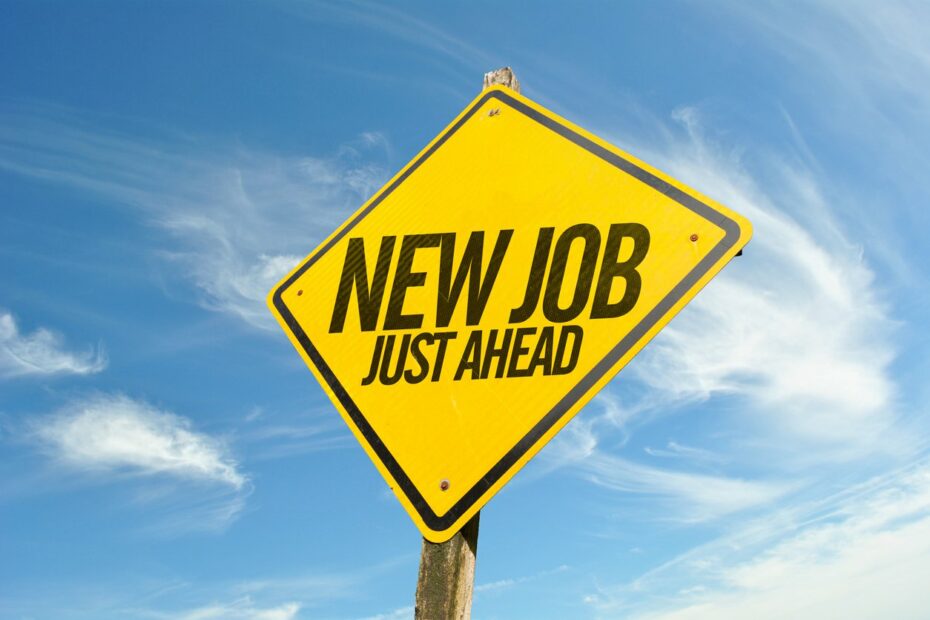A couple of years ago, there was a huge job fair in my city with all types of sponsors. There were ads everywhere I looked, and pretty much everyone in town knew about it. I got some reminders on email and text messages on my phone. And although I wasn’t looking for a job, nor was I sure how to prepare for a job fair, it still intrigued me. So, I thought about checking it out — you never know where your golden ticket to success awaits you!
Having never been to a job fair before, I didn't know that the key to being successful at a job fair is to be prepared. I was the opposite of prepared, and my first experience was a total disaster.
However, I did manage to learn from my mistakes and now surf through job fairs like a pro. As James Joyce once said, "A man's mistakes are his portals of discovery."
How To Prepare For A Job Fair?
That's when you should do your best to create a unique positive impression on your future employer. Following a plan and drawing a process in advance is critical. Below we list some of the essential steps you have to pay attention to rock in your next job fair.
- Research The Companies That Will Be At The Job Fair
- Print Your Resume
- Create Your Business Cards
- Dress Professionally
- Pre-Register Ahead Of Time
- Perfect Your Elevator Pitch
- Be Flexible
- Prepare to Take Notes
- Prepare a Follow Up After The Job Fair
- Prepare Thank You Emails
- Network With Everyone At The Fair
1) Research The Companies That Will Be At The Job Fair
Job fair sponsors usually list the companies that will be participating on their official website. Other information sources are social media pages, information pamphlets, ads, or you can directly call them.
Knowing what companies are going to be there helps you better prepare for interviews. You can narrow down the ones you're interested in and focus on them alone. A couple of taps and clicks on Google will have you know everything about them and what they're looking for.
There will be literature available at every booth, but don't rely on them to give you complete information. Have some 'smart' questions ready in advance. Employers like proactive people rather than passive ones.
But while preparing for the job fair, make sure these questions aren't already answered on their website or literature. You can ask about their hiring process, the skills they value most or the company's working environment.
2) Print Your Resume
You cannot go to a job fair without printing your resume. Of course, I knew the golden principle, but I waited to do it moments before my interview. Unluckily for me, my printer was out of ink. Also, I had no time to go knocking on somebody else's door, so I went resume-less to my first job fair.
And, of course, my interview was not as good as I expected it to be. I resorted to downloading my documents onto my iPad and flash drive, telling myself that everything’s electronic nowadays. But I couldn’t have been more wrong. This is not how you prepare for a job fair.
With so many people crowding a single stall, I could not transfer my resume to their computers or wave my iPad in their faces! Word to the wise: print your resumes a day in advance. You can figure out how many to print by looking at the number of organizations at the job fair from your research.
To be on the safe side, print a couple of extras as well. If you’re interested in more than one type of position, print different versions of your resume to match them. Also, have your business cards ready.
3) Create Your Business Cards
If you don’t have a business card, you can buy a stack of blank business cards and print them at home. List your full name, contact information, and your job title.
If you're currently working, add the title of the position you're working at and the organization you're employed at; otherwise, write the title of the kind of work you do, e.g., "graphic designer," "web developer, or "realtor".
Leave a business card with your resume with representatives at the fair, and ask for theirs in return. Job fairs are great for finding job vacancies, but they're also great for creating contacts.
Many people use these events to network. So have your business card ready and get networking to prepare for the job fair.
4) Dress Professionally
The way you look really matters. Your first impression is going to be the last impression at a job interview. The dressing is an essential aspect if you are thinking about how to prepare for a job fair.
Dress in business casual, but not too casual. Wear comfortable shoes that can carry you through the day yet look professional. The dress style can differ according to the industry and profession you're applying to, and some job fairs have dress codes.
So once again, scour the website for clues on what the appropriate dress code might be. Scan through Facebook and Instagram for photos of past jobs fair by the same sponsors, and you'll get a pretty clear idea of what works. But if in doubt, overdress.
5) Pre-Register Ahead Of Time
Not all job fairs require you to pre-register. But to be safe, check out the official website or Facebook page to see whether you need to register.
Some fairs have limited capacity, others add applicants to a central database, while some pre-screen candidates. Either way, skipping out on a simple registration form could cause you problems in entering the event. Better safe than sorry.
6) Perfect Your Elevator Pitch
You don’t have much time to make an impression — two minutes maximum. Rehearse what you can say to prospective employers to make them remember you.
The longer your pitch is, the more likely they’ll get bored and forget all about you. So keep it short, simple, and captivating. Sell yourself! Greet them with a firm handshake, eye contact, and a smile.
At the end of your introduction, hand in your resume and business card, ask for their business card and thank them for their time. If you have any questions, ask them towards the end of your conversation. Having an attractive pitch ready is a thing to remember wondering how to prepare for a job fair.
7) Be Flexible
The catalog provided at a job fair gives you a brief overview of the job opportunities. However, a job fair may not always be like you expected. In some cases, the options are not what you wanted, or they are not available anymore.
Many vacancies might just have ended, and many other positions may have just arisen. You wouldn't want to be rigid about the job descriptions, job titles, or even the companies in such a situation.
But rather be adaptable and flexible about the opportunities you get. No individual of an organization is knowledgeable of all positions, especially in a large company.
If the employer’s representative is not entirely aware of the positions that interest you, make sure to inquire about someone.
Consider learning about other companies' functional areas to ask the employer, get in touch with them and check on different existent positions in your area of interest.
In this case, a simple task of learning about other areas can be crucial to open new doors. Remember that when trying to figure out how to prepare for a job fair.
8) Take Notes
Sometimes the job fairs can offer excessive information to remember. The employer there might not be able to answer all your queries regarding the company you're applying to or the specifics about your job interests.
In such cases, you would want to have the contact details of other organization staff like name, telephone number, and email address to get in touch with them.
Notes are also important to send thank you emails and remember something specific you had during the conversation with employers.
Here, the simple task of keeping notes might be of importance if you're trying to learn more about preparing for a job fair.
9) Prepare a Follow Up After The Job Fair
After a job fair, you may want to send the people you met a follow-up message.
It's a slight chance for you to be fresh in the memories of the HRs you meet at the fair. It allows you to reaffirm why you are what they're searching for.
A follow-up has to be sent in one or two business days to the employers who interest you. For a follow-up, a handwritten note is considered to be more effective than a typed one. Thank them for their precious time and let them know that it was an overwhelming experience for you.
10) Prepare Thank You Emails
A recent job fair I attended had only 12 booths but hundreds of job seekers. The place was jam-packed, and a chance to deliver my elevator pitch meant elbowing my way to the front and stepping on people's toes.
At the end of the event, I wasn't so optimistic that they'd remember me with so many eager applicants lined up. That's where a thank you note came in handy.
I emailed all the company representatives I had spoken to (using the business cards I had gathered), thanking them for their time and mentioning something specific about our conversation.
One had asked about my blogs, so I sent him links to them in the thank you email, sparking a conversation. Send an email of appreciation within a week of the event; if you can do it within a day of the job fair, even better!
11) Network With Everyone At The Fair
All career fairs are about networking; of course, you connect with the recruiters; it's the most critical task.
Nevertheless, you can also network with your fellow job seekers to share information about career holders, companies, and their recruitment methods.
Tell them that if you see an open position they might want, you'll keep them in mind and ask them to do so. Networking proves great for future opportunities, as well.
Wrapping Up: How To Prepare For A Job Fair?
Attending an employment fair gives you the ability to advertise yourself, know more about particular jobs, and possibly make valuable connections.
Job fairs provide enormous opportunities for the right seekers, as many companies and employers search for the right people.
Job fairs save an ample amount of your time you'd spend looking for the right job one by one. If you follow the steps mentioned above about how to prepare for a fair, you will find yourself in a better place than most of the other attendees.

Christian has over ten years of experience in marketing agencies. Currently, he has been dedicating his time to a tech startup and also writing for major publications. He loves podcasts and reading to keep up with the latest trends in marketing.

great article!